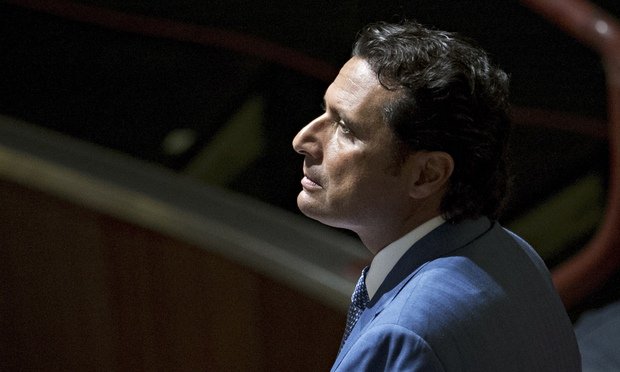The trial of the Costa Concordia cruise ship disaster, Capt. Francesco Schettino, is in its final moments in Italy.
Thirty-two people died in January 2012 when Costa Concordia was steered too close to the island of Giglio and hit rocks.
Francesco Schettino is about to find out whether he is guilty of multiple manslaughter.
The prosecution has demanded that Francesco Schettino be jailed for 26 years but the captain denies all the charges against him.
Prosecution and defense lawyers have made final statements, and the judges are close to delivering their verdict.
They have heard how Captain Francesco Schettino sailed his huge ship into disaster.
The captain has told the court that he was attempting to “salute” the island, by carrying out a sort of nautical fly-past that would take the liner skimming past the coast, very close in.
It was an attempt to impress his passengers and those ashore.
The court has examined in detail all that happened when the stunt went terribly wrong: how the ship was ripped open on the rocks and more than 4,000 passengers and crew were forced into a chaotic evacuation in the dark of a winter’s night.
In its closing arguments the prosecution told the court Francesco Schettino had acted with “monstrously gross negligence”.
It said Francesco Schettino had compounded his crime by abandoning his vessel, saving himself, while many of his passengers were still in great danger.
“The captain’s duty to abandon ship last isn’t just an obligation dictated by ancient maritime tradition, but also a legal obligation designed to minimize injuries,” said the prosecution.
Capt. Francesco Schettino “thought only and always of himself”.
All along, Francesco Schettino and his lawyers have argued that others should share the blame for the disaster, that it was a collective failure.
He pointed to the fact that the helmsman had been slow to carry out a steering order at a crucial moment as the ship closed in on the rocks. And he said others on the bridge should have seen the danger coming.
“One of the officers should have said to me, <<Commander, we are on the rocks>>, but instead there was a general silence.”
Francesco Schettino vigorously rejects the allegation that he was so gripped by indecision as the disaster engulfed him that he badly delayed giving the order to abandon ship, endangering many more people.
He argues that he waited because he knew the wind was carrying the ship into shallower, safer water. He insists that his action actually saved many lives.
This trial, with its hundreds of witnesses and thousands of documents was too big for Grosseto’s courthouse, so it was moved to the local theatre, the Teatro Moderno, and the drama is unfolding there.
Outside on the street, a growing throng of journalists watches the lawyers and court officials come and go.
In the bars and cafes, nobody really doubts that Francesco Schettino will be found guilty.
In court, Francesco Schettino’s lawyer, Domenico Pepe, appealed to the judges to acquit the captain. But he also said: “If the court has to impose a penalty, we believe it should be the minimum one in the light of the extenuating circumstances.”
In the aftermath of the wreck of its vessel Costa Crociere was allowed to make a plea bargain and was fined €1 million ($1.13 million).
However, some of the survivors and their lawyers argue that the company still has questions to answer on issues such as the caliber of the ship’s crew and its operating procedures.
On the eve of the verdict, one of the survivors asked how the company could have put a man like Francesco Schettino in charge of the Concordia.
[youtube fGRsl9hqIFo 650]
